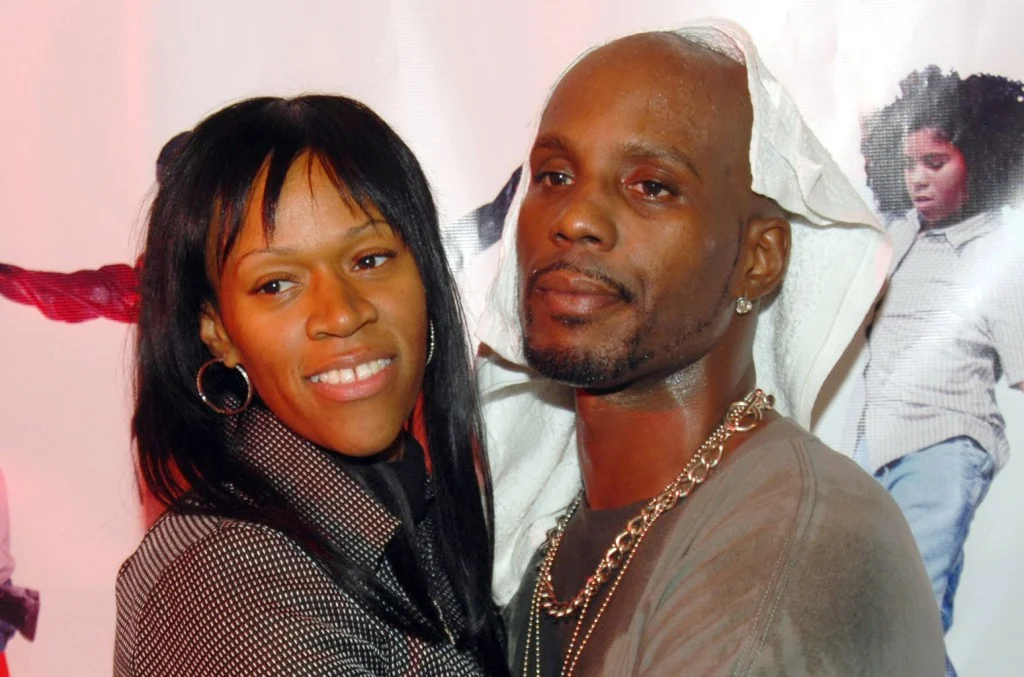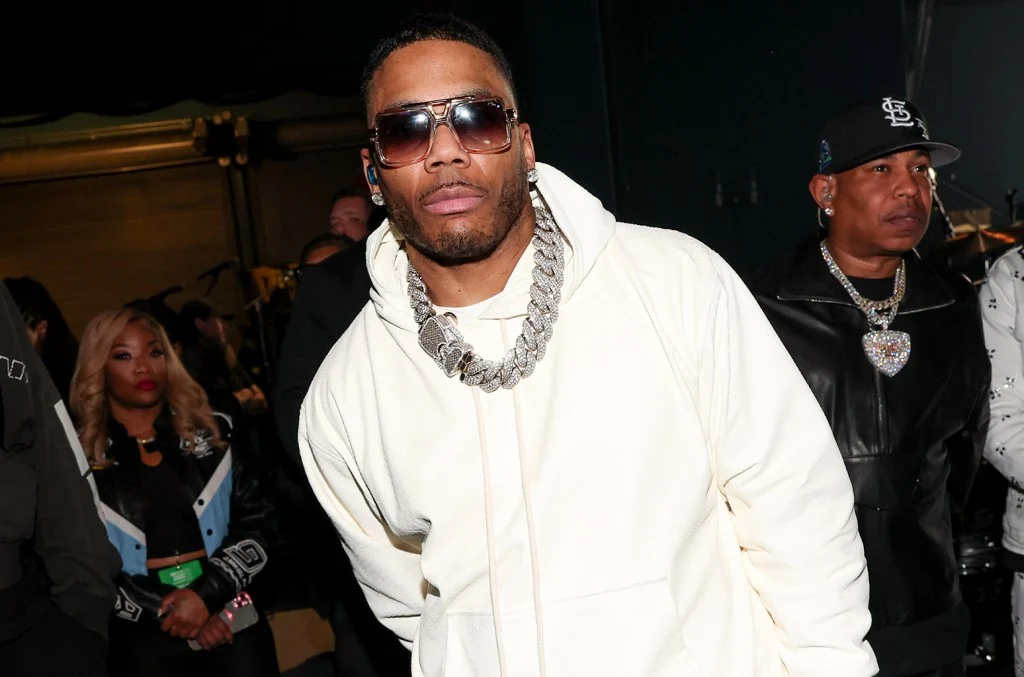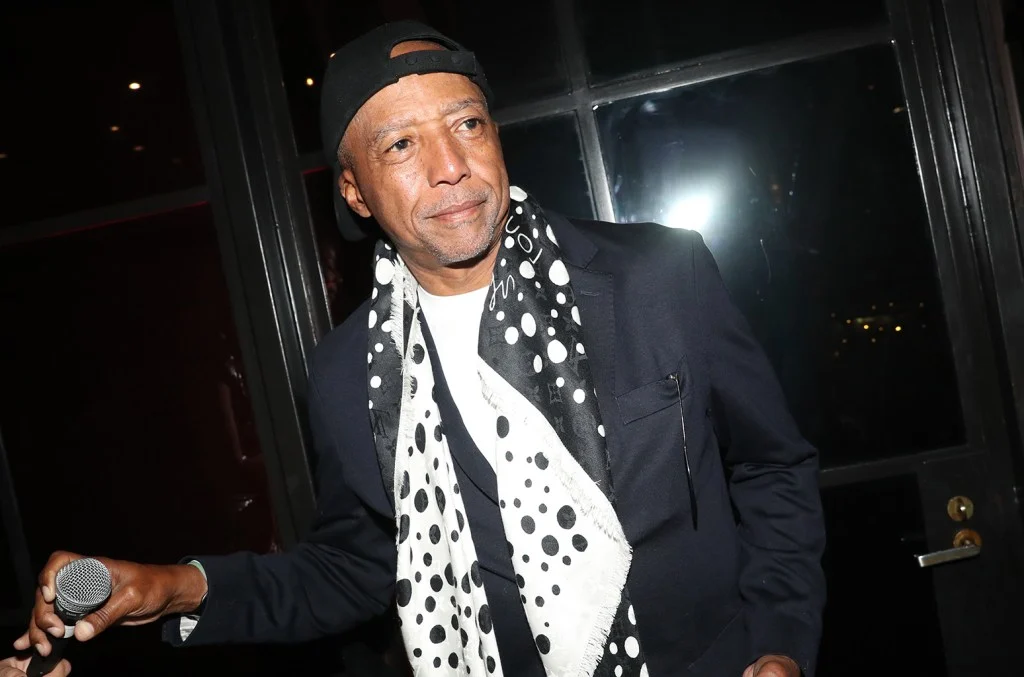Legal News
Page: 22
Attorneys for Megan Thee Stallion say Tory Lanez must be held in contempt of court over “disruptive” and “inflammatory” behavior during a recent deposition in a civil lawsuit that they say “made a mockery of the proceedings.”
In a motion filed Wednesday, lawyers for the rapper (Megan Pete) say Lanez (Daystar Peterson) – currently serving a 10-year prison sentence for shooting Megan in 2020 – behaved so poorly during the jail-house deposition that it had to be cancelled shortly after it started.
They claim he “feigned ignorance regarding the definition of basic words” and repeatedly harassed Megan’s lawyer about her appearance. They also say he “pretended that the video equipment was not working despite prison staff confirming it was functioning properly.”
Trending on Billboard
“Mr. Peterson made a mockery of the proceedings,” Megan’s attorneys write. “Nothing short of a contempt finding and meaningful sanctions will deter Mr. Peterson from continuing to abuse the process.”
On Thursday, Judge Cecilia Altonaga gave Lanez until April 30 to explain why he shouldn’t face such punishment: “Daystar Peterson is ordered to show cause why he should not be held in contempt of court for violating the court’s order authorizing his deposition.”
Lanez was convicted in December 2022 on three felony counts for shooting Megan in July 2020 during an argument following a pool party at Kylie Jenner’s house in the Hollywood Hills. In August 2023, he was sentenced to 10 years in prison. He has filed an appeal, which remains pending.
This week’s dispute comes in a civil lawsuit Megan filed last year against social media personality Milagro Gramz (Milagro Cooper), who the star claims waged a “coordinated campaign” with Lanez to “defame and delegitimize” her in the wake of the shooting and trial. A judge ruled in February that the case could move ahead, saying Megan’s allegations, if later proven, “paint a picture of an intentional campaign to destroy her reputation.”
As part of that lawsuit, Megan’s lawyers asked to depose Lanez from prison, saying it was necessary to investigate the extent of Gramz’ alleged coordination with him. But in Wednesday’s filing, Megan’s attorneys say the sit-down “proved to be a waste of time” due to Lanez’s “egregious” conduct.
Among other alleged disruptions, they say Lanez repeatedly demanded dictionary definitions of basic terms before he would answer simple questions, such as the word “meet” when they asked him if he had met with his attorneys ahead of the deposition.
“It could mean a lot of things. I mean meat could be a hot dog; meat could be a steak; meat could be red meat. It could be a lot of things,” Lanez allegedly said, according to a transcript cited by Megan’s lawyers. “You know what I’m saying? You could watch porno. Meat – meat is a whole different thing over there. Meet can be anything. I’m asking you what is your definition of ‘meet.’”
Megan’s lawyers say that Lanez behavior was so bad that even his own lawyers have “disavowed it.” In emails quoted in the filing, Gramz’ attorney Michael Pancier allegedly said the incident had “wasted our time as well” and that he would not oppose “any action you wish to take” against Lanez. Pancier’s co-counsel Michael Hayden, who also represents Lanez in his California criminal appeal, was allegedly copied on the email and did not object.
Reached for comment on the filing via email on Thursday, Pancier told Billboard: “Nothing much to say as Mr. Peterson is not my client and he is not a party to this litigation, and we have nothing to do with him.” Hayden did not immediately return a request for comment.
Drake has filed an updated version of his defamation lawsuit against Universal Music Group over Kendrick Lamar’s “Not Like Us,” claiming the rival’s Super Bowl halftime show was intended to “assassinate the character of another artist.”
In an amended complaint filed late Wednesday, Drake’s attorneys say the Super Bowl show, watched by 133 million people and “million of children”, “revitalized the public’s attention” to lyrics calling Drake a “certified pedophile” – a diss that the Canadian superstar claims is false and defamatory.
“It was the first, and will hopefully be the last, Super Bowl halftime show orchestrated to assassinate the character of another artist,” writes Drake’s lawyer Michael Gottlieb.
Trending on Billboard
During the halftime show, which took place weeks after Drake had already sued UMG over “Not Like Us,” Lamar omitted the word “pedophile.” But after much speculation over whether he’d play the song at all, Kendrick really didn’t hold back otherwise – making it the centerpiece of the set and clearly rapping similar lyrics, including: “Say, Drake, I hear you like ’em young.”
In Wednesday’s updated lawsuit, Drake’s lawyers say the decision to censor the word “pedophile” during the broadcast failed to avoid the song’s defamatory meaning – and instead had underscored the rapper’s legal case against UMG.
“Kendrick Lamar would not have been permitted to perform during the Super Bowl Performance unless the word ‘pedophile’… was omitted from the lyrics — that is because nearly everyone understands that it is defamatory to falsely brand someone a ‘certified pedophile’,” Gottlieb wrote in the new complaint. “The NFL, as well as the corporate entities responsible for the televised and streaming broadcasts of the Super Bowl Performance, all understood the words “certified pedophile” to be unacceptable in a broadcast to millions of listeners.”
Though it added new claims, the amended complaint also softened certain accusations against UMG, like the lawsuit’s claim that the label used bots to boost the song’s streaming numbers. Drake’s lawyers removed specific allegations about a “whistleblower” and potentially “indirectly” orchestrated such a campaign: “At minimum, UMG was aware that third parties were using bots to stream the Recording and turned a blind eye, despite having the power to stop such behavior.”
In a statement to Billboard on Thursday, UMG blasted Drake and his lawyers over the latest filing, calling the case “frivolous and reckless” and saying that changes were made to the lawsuit because Drake’s team was “fearful of being sanctioned for asserting false allegations.”
“Drake, unquestionably one of the world’s most accomplished artists and with whom we’ve enjoyed at 16-year successful relationship, is being misled by his legal representatives into taking one absurd legal step after another,” UMG wrote. “Should his legal representatives senselessly keep the New York lawsuit alive, we will demonstrate that all remaining claims are without merit. It is shameful that these foolish and frivolous legal theatrics continue. They are reputationally and financially costly to Drake and have no chance of success.”
Lamar released “Not Like Us” last May amid a high-profile beef with Drake that saw the two UMG stars release a series of bruising diss tracks. The song, a knockout punch that blasted Drake as a “certified pedophile” over an infectious beat, eventually became a chart-topping hit in its own right.
In January, Drake took the unusual step of suing UMG over the song, claiming his own label had defamed him by boosting the track’s popularity. The lawsuit, which doesn’t name Lamar himself as a defendant, alleges that UMG “waged a campaign” against its own artist to spread a “malicious narrative” about pedophilia that it knew to be false.
UMG has already filed a scathing motion seeking to dismiss the case last month, arguing not only that it was “meritless” but also ridiculing Drake for suing in the first place. That motion will be refiled following the filing of Wednesday’s updated lawsuit.
In one of the case’s earliest skirmishes, Judge Jeannette A. Vargas ruled earlier this month that discovery could move ahead in the case, denying UMG’s request to halt document production and depositions until after she decides whether to dismiss the case entirely. Drake’s attorneys had already sought swathes of evidence, including Lamar’s recording contract.
Drake’s lawyers billed that decision as a major win at the time, allowing them to “see what UMG was so desperately trying to hide.” But on Thursday, UMG warned that the ruling would cut both ways: “That ‘win’ will become a loss if this frivolous and reckless lawsuit is not dropped in its entirety because Drake will personally be subject to discovery as well,” the company wrote. “As the old saying goes, ‘be careful what you wish for.’”
In their own statement Thursday, Drake’s legal team said the amended complaint “makes an already strong case stronger” than it was before: “UMG’s PR ‘spin’ and failed efforts to avoid discovery cannot suppress the facts and the truth,” Gottlieb said. “With discovery now moving forward, Drake will expose the evidence of UMG’s misconduct, and UMG will be held accountable for the consequences of its ill-conceived decisions.”
Attorneys for Sean “Diddy” Combs are asking a federal judge to postpone his sex trafficking and racketeering trial by two months, blaming prosecutors for delays and saying they cannot “in good conscience” go to trial in May.
In a letter to the judge filed Wednesday (April 16), the star’s lawyers say the feds are dragging their feet on turning over crucial evidence and that the extra two months will give them “the necessary time to prepare his defense” for a new superseding indictment that was unveiled earlier this month.
The request — far longer than the two-week delay Diddy’s lawyers had hinted they might seek — is opposed by prosecutors, according to the letter: “This is a problem that the government has created, yet it opposes our reasonable request,” write attorneys Marc Agnifilo and Teny Geragos.
Trending on Billboard
A spokesman for the prosecution declined to comment on Combs’ request for a two-month delay.
Combs was indicted in September, charged with running a sprawling criminal operation that aimed to “fulfill his sexual desires.” The case centers on elaborate “freak off” parties in which Combs and others would allegedly ply victims with drugs and then coerce them into having sex, as well as on alleged acts of violence to keep victims silent.
A trial has long been set to start on May 5. If convicted on all of the charges, which include sex trafficking and racketeering, Combs faces a potential life prison sentence.
At a hearing Monday, prosecutors told Judge Arun Subramanian that they believed Combs’ legal team was stalling for time, according to the Associated Press. Agnifilo said at the time that he might seek a “very short” two-week adjournment over discovery issues, and Subramanian gave them until Wednesday to file such a request: “We are a freight train moving toward trial,” the judge said.
In Wednesday’s filing seeking instead a two-month delay, Diddy’s lawyers argued that the new indictment implicates “substantially new” alleged conduct. They also said prosecutors were “still producing discovery” and had failed to turn over key materials related to a sex trafficking charge that carries a 15-year mandatory minimum sentence if Combs is convicted.
“Under these circumstances, with discovery seemingly incomplete on a 15-year mandatory minimum count, we cannot, in good conscience, go to trial on the scheduled date,” Agnifilo and Geragos wrote.
Since his indictment, Combs’ legal team has indicated that it wants to take the case against him to trial relatively quickly. After the star was refused bail in September, Agnifilo said he was “going to do everything I can to move his case as quickly as possible.” The start of jury selection for the trial has been scheduled for May 5 since October.
But superseding indictments are a common reason that judges delay criminal trials, giving a defendant more time to prepare a defense to new charges and new evidence. Federal prosecutors have argued that the April indictment was not drastically different than earlier charges, but Diddy’s attorneys say it will put them at a disadvantage.
“We note that the court has broad authority to grant such continuances where the government seeks a superseding indictment which operates to prejudice a defendant,” Agnifilo and Geragos write.
With his sex trafficking and racketeering trial looming next month, Sean “Diddy” Combs has beefed up his trial team by hiring Brian Steel – the veteran Atlanta defense attorney who won Young Thug’s release from prison last year.
In a motion filed Tuesday in Manhattan federal court, Steel requested to be admitted as one of Combs’ lawyers ahead of the upcoming trial, which is currently set to go to jury selection on May 5. Such approval is necessary for out-of-state lawyers to practice in new courts.
The move marks a significant addition to the team representing Combs, the once-powerful rap mogul now charged with abusing women for decades. Steel will join Marc Agnifilo, a former federal prosecutor and longtime criminal defense attorney who has previously repped Martin Shkreli and Keith Raniere, and his law partner Teny Geragos.
Trending on Billboard
Steel made headlines with his recent work defending Young Thug (Jeffery Williams), who faced a slew of felony charges in Georgia over allegations that his “YSL” rap collective was actually a violent street gang that had wrought havoc on Atlanta. The attorney often took center stage during that case, which captivated the music industry for more than two years.
A well-regarded defense attorney for years in Atlanta, Steel is known for his unique demeanor in the courtroom – polite, calm and scrupulous, but also relentless. Case in point: In June, he accused the judge overseeing Thug’s trial of holding an illegal secret meeting with prosecutors and a key witness. When the judge demanded to know how he’d learned of the meeting, Steel refused to answer so steadfastly that he was eventually held in contempt and ordered into custody. Weeks later, that judge was removed from the case over the incident and Steel was later cleared of any wrongdoing.
In some ways, the case facing Combs is similar to the one leveled against Thug. Both were charged with violating RICO laws (Racketeer Influenced and Corrupt Organizations), accused of serving as the bosses of large criminal organizations. But Thug’s case was centered on accusations that his group committed drug dealing, carjackings and an alleged drive-by shooting; Combs is accused of using his fame and his sprawling business empire to sexually abuse numerous women and then keep them silent.
Differences aside, Combs is no doubt hoping for a similar result to the one Steel secured for Thug.
After botched testimony from a state’s witness in October sparked talk of a mistrial, prosecutors began reaching plea deals with multiple defendants. But Steel and Thug refused to take one, instead opting to simply plead guilty and hope the judge would set him free on probation rather than the 25 years the district attorney was seeking.
That gamble paid off: After sentencing Thug to only 15 years probation with no time to be served in prison, the judge urged the Grammy-winning rapper to use his platform to set a good example for young people in the future: “Good luck to you. And there better be no violations.”
Since he was indicted in September, Combs’ legal team has seen several shakeups. He hired Alexandra Shapiro, an well-known appellate specialist, in October. Anthony L. Ricco, another prominent New York defense attorney, withdrew from the case in February for undisclosed reasons.

This is The Legal Beat, a weekly newsletter about music law from Billboard Pro, offering you a one-stop cheat sheet of big new cases, important rulings and all the fun stuff in between.
This week: DMX’s estate wins a legal battle with his ex-wife over his music catalog; Nelly’s former St. Lunatics bandmate drops a lawsuit over his debut solo album; Soulja Boy is hit with a $4 million civil verdict for assault and sexual battery; and much more.
THE BIG STORY: DMX Estate Battle
Back in 2016, the late great DMX (Earl Simmons) signed a divorce settlement with his then-wife Tashera Simmons, ending a long marriage that had extended through his turn-of-the-century heyday, as he released Billboard Hot 100 hits like “Party Up (Up In Here).”
Trending on Billboard
Among other provisions, the deal mentioned “intellectual property,” a key marital asset for a chart-topping musician. Tashera says that clause gave her co-ownership of his copyrights and trademarks, but DMX insisted that it only granted her the right to receive royalty payments — an argument his estate has maintained in the years since his 2021 death.
That’s a crucial distinction. Royalties are all well and good, but ownership would give Tashera approval power over the use of DMX’s catalog and name. That would mean an effective veto over potentially lucrative projects, like a biopic about the legendary rapper.
In a ruling last week, a New York judge ruled against Tashera on that question, declaring that DMX’s estate (run by an ex-fiancée and a daughter by another woman) was the “sole owner of all intellectual property rights.” Why that ruling? To find out, go read our full story here, with access to the full decision issued by the judge.
Other top stories this week…
NELLY CASE CLOSED – OR IS IT? – Nelly’s former St. Lunatics bandmate Ali moved to voluntarily dismiss a lawsuit that had accused the rapper of failing to pay him for his alleged work on Nelly’s 2000 debut album Country Grammar. But Nelly’s lawyers quickly opposed the move, arguing that Ali and his lawyers must face sanctions for filing a “ridiculous” case that “should never have been brought.”
SOULJA BOY VERDICT – Following a month-long trial, a Los Angeles jury held Soulja Boy liable for assault, sexual battery and intentional infliction of emotional distress in a civil lawsuit filed by a former personal assistant who claimed that he raped her. Jurors awarded the Jane Doe accuser more than $4 million in damages, and she could win even more in so-called punitive damages in future proceedings.
“PATENTLY FALSE” – Record executive Kevin Liles asked a federal judge to throw out a lawsuit accusing the 300 Entertainment founder of sexual assault in the early 2000s, arguing there’s zero evidence for the “salacious” allegations because they are “entirely false.” His lawyers argued the allegations — that Liles harassed and sexually assaulted an unnamed female employee while serving as the president of Def Jam Records in 2002 — are both “patently false” and were filed far past the statute of limitations.
LIMITATIONS OF STATUE – Former Migos rapper Quavo (Quavious Marshall) was hit with a copyright lawsuit centered on a recent music video he released on TikTok — not over an uncleared sample or a stolen melody, mind you, but a quartz sculpture of a 1961 Ferrari that he used as a prop. The case, filed by sculptor Daniel Arsham, claimed that Quavo “unlawfully exploited” the piece by rapping in front of it during the December social media video: “Mr. Arsham never consented to the artwork being used in the infringing content.”
KAROL G RULING – A court in Colombia ruled that Karol G’s “+57” violated that country’s laws because its lyrics “sexualized” minors, capping off months of controversy over the track. “Sexualizing minors reduces them to becoming objects of desire, and exposes them to risks that can affect their development,” the court wrote in the ruling. The song, also featuring J Balvin, Maluma, Feid, Blessd, Ryan Castro and DFZM, has faced a barrage of criticism after it originally included a line about a woman being a “mamacita” since she was 14 years old.
AI LEGISLATION – A federal law that would ban unauthorized AI deepfake impersonations, known as the NO FAKES Act, was reintroduced in Congress — only this time with public support from AI powerhouses including OpenAI and YouTube. First introduced last year, the bill would create a federal right of publicity for the first time, allowing individuals to police how their name, image and likeness are used by others, an issue that has become far more pressing as AI video generators make it far easier to create uncanny deepfakes.
Rapper Tay-K has been found guilty of murdering a photographer in 2017, but was acquitted of capital murder. On Monday (April 14), a jury found the rapper, real name Taymor Mclntyre, guilty of robbing and killing photographer Mark Anthony Saldivar, according to News 4 San Antonio. Prosecutors had argued Mclntyre fatally shot Saldivar after stealing […]
Quavo is facing a copyright lawsuit centered on a recent music video — not over an uncleared sample or a stolen melody, but a quartz sculpture of a 1961 Ferrari that he used as a prop.
In a complaint filed late last month, attorneys for sculptor Daniel Arsham claim the rapper (Quavious Marshall) “unlawfully exploited” the Ferrari sculpture by rapping in front of it in a video he posted to TikTok and other social platforms in December.
“Without his consent, and without his knowledge, defendants created a video which prominently featured the artwork to promote the music of Quavo,” Arsham’s lawyers write in the March 31 lawsuit. “Mr. Arsham never consented to the artwork being used in the infringing content.”
Trending on Billboard
Arsham created the sculpture — fully entitled “Quartz Eroded 1961 Ferrari GT” — in 2018 as part of a series portraying famous cars that have been “eroded” like an ancient archeological find. He says it’s been publicly displayed twice, most recently at Los Angeles’ Petersen Automotive Museum in 2023.
In December, Quavo posted a video to Instagram and other platforms under the caption “Back To The Basics 2025!!”, featuring him rapping in front of what appears to be Arsham’s work. The video, which remains on TikTok, focuses heavily on the sculpture, including close-ups on its eroded features.
Just like music, books and paintings, sculptures are protected by federal copyright law, and reproducing one without permission can theoretically amount to infringement. Back in 2018, the artist behind Chicago’s “Bean” sculpture sued the National Rifle Association for using the famed statue in a promotional video.
Copyrighted works captured in the background of video footage raise tricky legal questions. A federal judge ruled in 2018 that a Detroit graffiti artist could move ahead with suing General Motors after his mural appeared in a Cadillac commercial. But last year, another federal judge dismissed a case filed by a photographer whose image briefly appeared in the background of a documentary about Billie Eilish.
In his lawsuit, Arsham says the use of his sculpture was hardly coincidental or brief: “The infringing video features Quavo performing in front of the Artwork. The Infringing Video is 45 seconds long and features the Artwork prominently throughout.”
According to the artist’s attorneys, when Quavo posted still images of the video to Instagram, he actually tagged Arsham’s Instagram handle in the caption. They say that not only confirms that he knew he was using a copyrighted work, but also violated Arsham’s likeness rights.
“Mr. Arsham never consented to his name being used in connection with the Infringing Post or any promotion of Quavo,” his attorneys wrote. “Defendants are using Mr. Arsham’s name for commercial advantage.”
A rep for Quavo did not immediately return a request for comment on Friday (April 11). The lawsuit also names Quavo’s label, Quality Control Music, and its parent company, HYBE America, as co-defendants.
Nelly’s former St. Lunatics bandmate Ali wants to drop a lawsuit that had accused the rapper of failing to pay him for his alleged work on Nelly’s 2000 debut album Country Grammar. But Nelly’s lawyers say Ali and his lawyers must pay for bringing a “ridiculous” case.
The action, filed last year, alleged that Nelly (Cornell Haynes) had cut four of his former St. Lunatics crew out of the credits and royalty payments for the hit album. It claimed the star had repeatedly “manipulated” them into falsely thinking they’d be paid for their work.
But three of the St. Lunatics quickly dropped out, saying they had never actually wanted to sue Nelly and had never given legal authorization to the lawyers who filed the case. And in recent months, Nelly’s lawyers had sought punishing sanctions against those attorneys.
Trending on Billboard
In a motion filed Thursday (April 10), Ali and his lawyers moved to voluntarily dismiss the case. They offered no rationale for why they were doing so, and there was no indication that a settlement of any kind had been reached. They did not immediately return a request for comment.
Nelly’s attorneys aren’t going to let him off the hook that easily. In a quick response, they urged the judge to refuse to dismiss the case until he decides whether Ali and his attorneys should face punishment for filing a “vexatious” lawsuit that “should never have been brought.”
“Plaintiff’s counsel succeeded in its frivolous campaign aimed at forcing Haynes to spend money defending Plaintiff’s ridiculous time-barred claims,” the star’s lawyers write. “The Court is respectfully requested to retain jurisdiction and set a briefing and hearing schedule for [potential sanctions].”
Nelly rose to fame in the 1990s as a member of St. Lunatics, a hip-hop group also composed of St. Louis high school friends Ali (Ali Jones), Murphy Lee (Tohri Harper), Kyjuan (Robert Kyjuan) and City Spud (Lavell Webb). With the June 2000 release of Country Grammar — which spent five weeks atop the Billboard 200 — Nelly broke away from the group and started a solo career that later reached superstar heights with his 2002 chart-topping singles “Hot in Herre” and “Dilemma.”
In September, all four St. Lunatics accused Nelly of cheating them out of compensation for contributions they’d made to Country Grammar. They claimed they had waited so long to sue because they believed their “friend and former band member would never steal credit” from them.
But a month later, the lawsuit took a strange turn: Nelly’s lawyers filed a letter warning that Lee, Kyjuan and Spud had never actually wanted to sue Nelly and that they had not given legal authorization to the lawyers who filed the lawsuit to include them as plaintiffs.
“They are hereby demanding you remove their names forthwith,” Nelly’s lawyers wrote in a letter to Walton. “Failure to do so will cause them to explore any and all legal remedies available to them.”
In November, Ali’s attorneys filed an updated version of the lawsuit listing only Ali as a client and vowed to fight on. But Nelly’s attorneys have since argued that the case is “frivolous,” claiming it was clearly filed years after the statute of limitations had expired. In January, they said it was so obviously flawed that the lawyers who filed it should be punished for going to court.
“Plaintiff and his counsel should be sanctioned in the full amount … that Haynes has been forced to incur in defending this action,” the rapper’s lawyers wrote at the time. “That is because plaintiff’s claims should never have been brought in the first place.”
Last month, the judge overseeing the case said he would not rule on that motion until he decided whether to dismiss the case. Such a motion to dismiss from Nelly’s attorneys was pending when the case was voluntarily dropped.
A Los Angeles jury held Soulja Boy liable Thursday (April 10) in a civil lawsuit filed by a former personal assistant who says he raped her, awarding the unnamed woman $4 million in damages.
As first reported by Courthouse News, jurors held the “Crank That” rapper (DeAndre Cortez Way) liable for assault, sexual battery and intentional infliction of emotional distress. The jury cleared him of claims of false imprisonment or hostile work environment.
Following the month-long trial, the jury awarded the Jane Doe accuser $4 million in so-called compensatory damages. And they could award more in so-called punitive damages in future proceedings.
Trending on Billboard
The accuser, who says she was hired as Soulja Boy’s assistant in 2018, sued the star in 2021, claiming he had repeatedly beaten and raped her over a two-year, sometimes consensual relationship. In one alleged assault, her lawyers claimed that “Way attacked plaintiff so hard that she thought she was going to die.” The rapper has “vehemently and unequivocally” denied the woman’s allegations.
During closing arguments Monday (April 7), as reported by Rolling Stone, attorneys for the Jane Doe portrayed Soulja Boy as a vicious boss and told jurors that “he raped her, he punched her, he kicked her, he cut her.” The rapper’s lawyers, meanwhile, painted the accuser as a bitter former love “motivated by jealousy, revenge and financial gain”: “She wanted to be paid. That’s what this case is all about. It’s not about the truth, it’s just not,” they said.
“We’re happy our client was vindicated and the jury believed her claims,” said Ron Zambrano, the accuser’s lead attorney. “We’re looking forward to moving on to the punitive damages phase of the case.”
An attorney for Soulja Boy did not immediately return a request for comment.
This isn’t the first time Soulja Boy has faced such accusations. Back in 2023, he was ordered to pay ex-girlfriend Kayla Myers $471,900 stemming from an assault and kidnapping lawsuit she filed against the rapper in 2020.
Record executive Kevin Liles is asking a federal judge to throw out a lawsuit accusing him of sexual assault in the early 2000s, arguing there’s zero evidence for the “salacious” allegations because they are “entirely false.”
In a letter to the judge filed Tuesday, attorneys for the 300 Entertainment founder say they’re planning to file a motion to dismiss the case, which alleges that Liles harassed and sexually assaulted an unnamed female employee while serving as the president of Def Jam Records in 2002.
“During his storied career, Mr. Liles has never faced a single accusation of sexual impropriety,” his attorneys write. “That is, until plaintiff filed this patently false and untimely lawsuit some twenty-three years after the alleged conduct purportedly occurred.”
Trending on Billboard
Liles’ lawyers say the Jane Doe’s lawsuit contains only generic accusations and almost no specific details to support her allegations – an omission that they say is “not surprising as the claims are entirely false.”
“Beyond these threadbare assertions, spanning only three paragraphs, plaintiff offers zero factual bases for her salacious allegations,” his attorneys say “This court need not credit Plaintiff’s threadbare recitals and ‘defendant-unlawfully-harmed-me’ accusations.”
Liles served as president of Universal Music Group’s Def Jam Recordings and executive vice president of the Island Def Jam Music Group from 1999 to 2004. After a stint at Warner Music Group, he co-founded 300 Entertainment in 2012 with Lyor Cohen, Roger Gold and Todd Moscowitz. The label, which quickly gained recognition for developing hip-hop superstars like Megan Thee Stallion, Migos and Young Thug, was acquired by Warner in 2021 for $400 million. In September, Liles announced he would step down from his role as chairman and CEO.
The case against Liles was filed in February by a woman who says she was hired as an executive assistant at UMG in 1999. She claims that Liles began sexually harassing her shortly after she was hired, which then “escalated” into groping. In an alleged 2002 incident, Doe says he assaulted her after she rebuffed his advances.
“Kevin Liles proceeded to physically force himself on top of [Jane Doe] where he began to sexually assault and ultimately rape her despite her continued protests,” her attorneys wrote in their complaint.
But in Tuesday’s response, Lile’s attorneys say those allegations are woefully insufficient, arguing they lack the kind of basic facts required to bring legal allegations in court. They say Doe “does little more than simply assert in conclusory form that Mr. Liles assaulted her.”
“Plaintiff offers no detail whatsoever regarding the nature of the purported assault she suffered,” they write. “She fails … to explain when these purported acts occurred, where in UMG’s offices they occurred, identify a single person she reported this information to, or who was present.”
As for the rape allegation, Liles’ attorneys say the case is similarly lacking: “Like the other specific details she fails to provide, plaintiff does not offer a specific time, how she came to be in contact with Mr. Liles who she neither reported to nor worked for, or anything other than the conclusory assertion that she suffered an assault.”
Beyond the alleged deficiencies in the case, attorneys for Liles say the case should also be dismissed for a simpler reason: That it was filed well beyond the statute of limitations. Doe’s attorneys sued under a New York state law that created a one-year window to file such cases, but did so after the deadline to bring them: “Plaintiff failed to assert any claim against Mr. Liles whatsoever during that one-year window, and it has now closed.”
UMG, which was named as a co-defendant in the case, also filed a letter Tuesday saying it would seek to dismiss the case. The music giant’s attorneys have similar protests about time limits, but also argue more broadly that they cannot be sued over alleged actions by one of its executives.
“UMGR cannot be held liable for the alleged actions of Mr. Liles,” the company’s attorneys write, referring to UMG Recordings. “Assuming he had engaged in the conduct alleged, UMGR is a music company and the alleged conduct was indisputably not in furtherance of any business of UMGR.”

 State Champ Radio
State Champ Radio 









